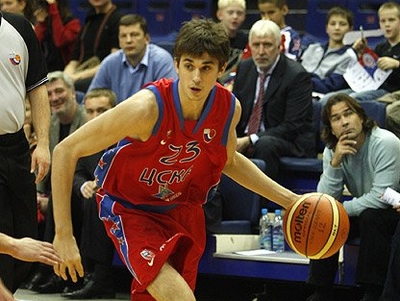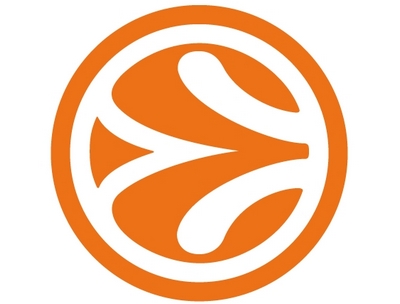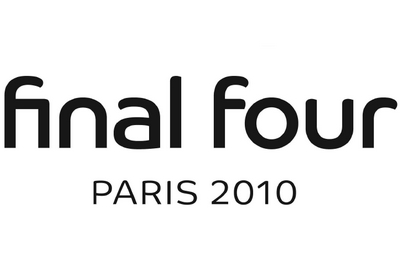-Right off the plane almost, we got to take in the intercity Moscow derby between CSKA and Dynamo Moscow. This was about as high level a game as weve seen this season thus far, an intense, seesaw affair with some incredible individual outbursts from the likes of Ramunas Siskausas (17 points in the first half) and Jannero Pargo (13 points in the first 6 minutes).
-We were a bit surprised to see the arena situation of the Euroleague champions. CSKA plays in an old airport terminal built almost 30 years ago, with just a few rows of seating behind the baskets, very little atmosphere from their fans, and one of their two scoreboards that wouldnt be considered suitable for some high school teams. Hardly the setting you would expect to host two of the top teams in the world outside of the NBAbitter intercity rivals facing off in a high-stakes battle for first place in the richest league in Europe.
There was actually some talk about a new arena being built sometime soonbut the financial crisis (which hit Russia particularly hard) put a quick end to that.
A brand new hockey arena (the team there is also called CSKA) sitting 17,000 people was built right next door a few years back, and if the NBA does ever decide to start a European branch, there is the possibility of hosting games there. The problem is that its prohibitively expensive to rent the place out twice a week and alternate the floor back and forth between hockey and basketballmeaning Europes #1 organization will look like anything but that on first glance for the time being.
Getting off the subway en route to the CSKA-Dynamo game, I decided to follow a pack of fans out of the station dressed in CSKA gear. I figured they obviously could read Cyrillic alphabet letters better than me. Only after entering the arena (showing my ticket to at least three highly disinterested ushers on the way) and claiming my seat did I realize that it was a bit chilly inside, which finally made me realize that I accidentally walked into the hockey arena, instead of the basketball gym. It seems a bit strange for both teams to conduct their games at the same time (5 PM, oddly enough), but there are a lot of strange things that happen in Moscow Ive discovered these past few days.
-Everything else, besides the arena, seems to be top-notch here. The locker room is NBA quality, there is security staff everywhere you turn, the players fly to games on a private jet (a rarity in Europe), and the coaching staff is about twice the size of most teams here, even though half of them sit in the stands.
This is a great example of the bizarre Russian rulebook, which states that on any team that has more than six foreigner players on the squad, the non-Russian assistant coaches are not allowed to sit on the bench for league games.
Another small interesting detailCSKA hires a private cameraman to film every single game on every court in the Russian leagueeliminating any problems they might have acquiring tape of potential opponents.
Their scouting department (lead by the extremely well respected former [and likely future] Italian league General Manager Claudio Crippa) is present at every event in the world seemingly (at least all the ones we're at), meaning they aren't just resting on their laurels, and are taking this part of the business extremely seriously as well. Even though this team is about as competitive as you'll find, they have no less than nine players currently under contract with the senior team who are age 26 or younger, seven of whom see playing time in the Euroleague. The cupboard is going to be full for a long time it seems.
-The people at CSKA were nice enough to have me in their gym for their last two practices before they hopped on a plane leaving for Milan, where they will be played their next Euroleague game.
-CSKAs roster is incredibly deep, meaning splitting the team into two units and having them compete against each other is not a problem at all. They go three deep at every spot on the depth chart, and have some very intriguing young players at their disposal at well, which keeps things competitive at all times. Even with J.R. Holden out for another two weeks or so, CSKA had 14 players practicing.
-The intensity level was extremely high for every minute of action seen in practice here. The sessions were short, no more than 60 to 75 minutes at most, but the players were working constantly, either on game-situations, such as 3 on 2 transition drills (5 seconds or less per possession) or breaking a full-court press [a big key against Milan], individual skill-work with guards and post-players separated (short one on one matchups with the defender closing out in the post or on the perimeter), or long stretches of 5 on 5 play dedicated to using just a specific half-court set.
-Messina is nothing if not a perfectionist, and he demands flawless execution from his players in everything they do. His presence is felt everywhere on the court, as hes in constant motion, bringing a huge amount of energy to every moment of action. He is not afraid to get in any one of his players faces, from the youngest player to the oldest, for making even the slightest mistake, raising his tone frequently, but always doing so in a concise and professional mannernever in petty or sarcastic fashion. Just do your [effing] job! he demanded, on at least a dozen occasions.
-The attention to detail was extremely evident. The ball must move crisply around the court at all times, off-ball movement is constant, passes should be made with purpose, players must box out on every possession and read the happenings on the court with the utmost concentration, every finish around the basket must be made immediately, and most importantly, the players need to put a huge amount of pride into their work on the defensive end, especially off the ball.
Were not talking about rocket science obviously-- just the fundamentals of basketball--but the means and consistency of the message--along with the respect that the source has managed to garner throughout the years-- eventually hammers the point across.
-As quick as he is to criticize, Messina isnt afraid to offer praise. Bravo he offers up on every other possession, particularly rewarding his players for a good defensive effort, a smart pass, a solid screen, or an unselfish play that contributes to the teams effort. Messages are short and to the point, and very little time is wasted in-between action.
-The question of whether this style of coaching would fly in the NBA didnt take too long to come up in my mind, as the average American player (particularly the stars) just isnt used to the amount of nitpicking on every minute detail that is found here. Its just a difference of culture between American and European basketball more than anythingone that starts in high school and AAU, continues in college and is very difficult to squelch once they reach the professional level. Its no secret that some players dont take criticism very well, and you at times feel like some NBA coaches are at times a bit scared of hammering a point across too forcefully, as if not to have their star player or players turn against them.
-The reason this is important is because if any European coach gets hired by an NBA team in the near future, there is a good chance it will be Ettore Messina. With a very intriguing job just having opened up in Torontoa European-style city with a European friendly roster and front officeits only natural to wonder whether Messina will get the call when the season is over. Its widely expected at this point that he will be moving onto a new situation this summer (only the incompetence of Barcelonas ownership kept him from taking that job last year already), and along with Armani Jeans Milano (a strong possibly according to rumors) his name could very well come up for NBA openings too.
-As good of a job as Messina does, we cant ignore the depth of talent he has at his disposal. The roster has been constructed with a huge amount of emphasis on experience, character, skill and professionalism. Players like Trajan Langdon (in particular), Ramunas Siskauskas, Nikolaos Zisis, Viktor Khryapa and others looked incredibly focused on what their role is here on the team, executing crisply, making open shots, defending with intensity, and always looking out for their teammates. They dont make much noise, but their presence is constantly felt, and thats a huge reason why CSKAs well-oiled machines is able to run so smoothlyespecially when these players are signed to long-term contracts (another rarity in Europe) and brought back year after year, bringing incredibly important continuity and chemistry to the roster.
Both practices I saw were conducted at an incredibly high-level and were extremely fun to watch, with few turnovers, great shooting percentages, unselfish passes and excellent execution. Because of the quality and depth of the roster, and the intensity Messina demands, its not a stretch to say that CSKA practices are about as competitive as some real Euroleague games, which brings us to our next point.
-
Alexey Shved was one of the main draws on CSKAs roster as far as scouting NBA prospects is concerned. He left a great impression on many at the Reebok EuroCamp in Treviso last summer, and this was a perfect opportunity for us to evaluate his progress in a very competitive setting, since he rarely plays in actual games.
Shveds obligations to the Russian army are holding him out of league games recently, but its unlikely he would play very much, if any, regardless. Frail, and a bit on the wild side, he just hasnt yet made the step up to the level Messina demands from his rotation players defensively or in terms of his decision making skills.

Even though hes not ready to contribute consistently at the highest level in the world outside the NBA right now, Shved is regardless an extremely interesting long-term prospect thanks to his undeniable talent. Extremely fluid, skilled and athletic, even alongside these players, Shved is able to hold his own and them some offensively on a daily basis. He regularly created his own shot with his excellent ball-handling skills and very nice first step, and was able to score consistently with his perimeter jumper. He gets it off both in static fashion or pulling up off the dribble from mid-range, sometimes off a smooth crossover going left or right. He is more than capable of getting to the basket at times, and can use both hands creatively once there, but he struggles to finish in traffic on occasion due to his extremely thin frame.
Playing almost exclusively at the point guard position (despite standing 6-5), Shved showed great vision creating shots for his teammates, sometimes in highlight reel fashion. He is extremely creative and just has a terrific feel in general for making things happen on the court, which is sure to translate itself to the professional level sooner or later. Still a bit on the wild side, he clearly lacks experience in terms of how best to maximize his gifts.
Going into these practices, we were a bit down on Shveds situation in CSKA Moscow, due to the very little playing time hes enjoyed over the past few years at the senior level. What we saw here made us think twice, though. Young players need minutes to develop, there is no question about that, but Shved is not just sitting on the bench biding his time in Moscow.
Even if he doesnt play in real games, there is a lot to be said for competing in practice every single day against the type of players Shved does. The competition he faces on a daily basis is about as good as it gets, and Messina is putting a significant effort into the task of developing him, picking apart nearly his every move on both ends of the court in the two practices we observed. He was in his ear immediately after every poor defensive possession (of which there were many), and egged him on after any lazy pass, over-dribble, wild half-court set, etc. Shved might be struggling right now, but hell become a significantly better player in the long term because of the tough love hes getting from Messina.
As far as his NBA draft stock is concerned, Shved will likely have a hard time getting drafted higher than the second round if he cant find a way to get on the court by the time June of 2010 rolls around. That might not be such a bad thing, though, for a variety of reasons (his own development, CSKAs investment, the NBA rookie scale, and others). In terms of pure talent, there are few guards in the NCAA that would rank ahead of him, even if there is obviously a lot more to the equation that just that. There are clearly still many question marks left to be answered before Shved will be able to fully tap into the immense potential he enjoys.
Shveds obligations to the Russian army are holding him out of league games recently, but its unlikely he would play very much, if any, regardless. Frail, and a bit on the wild side, he just hasnt yet made the step up to the level Messina demands from his rotation players defensively or in terms of his decision making skills.

Even though hes not ready to contribute consistently at the highest level in the world outside the NBA right now, Shved is regardless an extremely interesting long-term prospect thanks to his undeniable talent. Extremely fluid, skilled and athletic, even alongside these players, Shved is able to hold his own and them some offensively on a daily basis. He regularly created his own shot with his excellent ball-handling skills and very nice first step, and was able to score consistently with his perimeter jumper. He gets it off both in static fashion or pulling up off the dribble from mid-range, sometimes off a smooth crossover going left or right. He is more than capable of getting to the basket at times, and can use both hands creatively once there, but he struggles to finish in traffic on occasion due to his extremely thin frame.
Playing almost exclusively at the point guard position (despite standing 6-5), Shved showed great vision creating shots for his teammates, sometimes in highlight reel fashion. He is extremely creative and just has a terrific feel in general for making things happen on the court, which is sure to translate itself to the professional level sooner or later. Still a bit on the wild side, he clearly lacks experience in terms of how best to maximize his gifts.
Going into these practices, we were a bit down on Shveds situation in CSKA Moscow, due to the very little playing time hes enjoyed over the past few years at the senior level. What we saw here made us think twice, though. Young players need minutes to develop, there is no question about that, but Shved is not just sitting on the bench biding his time in Moscow.
Even if he doesnt play in real games, there is a lot to be said for competing in practice every single day against the type of players Shved does. The competition he faces on a daily basis is about as good as it gets, and Messina is putting a significant effort into the task of developing him, picking apart nearly his every move on both ends of the court in the two practices we observed. He was in his ear immediately after every poor defensive possession (of which there were many), and egged him on after any lazy pass, over-dribble, wild half-court set, etc. Shved might be struggling right now, but hell become a significantly better player in the long term because of the tough love hes getting from Messina.
As far as his NBA draft stock is concerned, Shved will likely have a hard time getting drafted higher than the second round if he cant find a way to get on the court by the time June of 2010 rolls around. That might not be such a bad thing, though, for a variety of reasons (his own development, CSKAs investment, the NBA rookie scale, and others). In terms of pure talent, there are few guards in the NCAA that would rank ahead of him, even if there is obviously a lot more to the equation that just that. There are clearly still many question marks left to be answered before Shved will be able to fully tap into the immense potential he enjoys.
-CSKAs other draft prospect, super-skilled and skinny 7-footer Artem Zabelin, is still recovering from injury, after tearing his ACL in the U-20 European Championship this summer, and was nowhere to be found here.
-
Also practicing with CSKA, due to the injury to J.R. Holden, and because of their need for an additional ball-handler, was 6-5 Russian combo guard Maxim Zakharov, born in 1989. Zakharov is spending large minutes at the point for CSKA, even if he clearly has ample size for the SG position. Hes a very skinny, but fairly long player with solid athleticism and nice talent, looking pretty creative with his slashing moves over the two days we saw him, but also being somewhat out of control at times, perhaps not showing the best feel for the game. His long-range stroke seems to be just average, but he has some potential to continue to improve, most likely for the Russian league level.
Next: Moscow part two































Comments